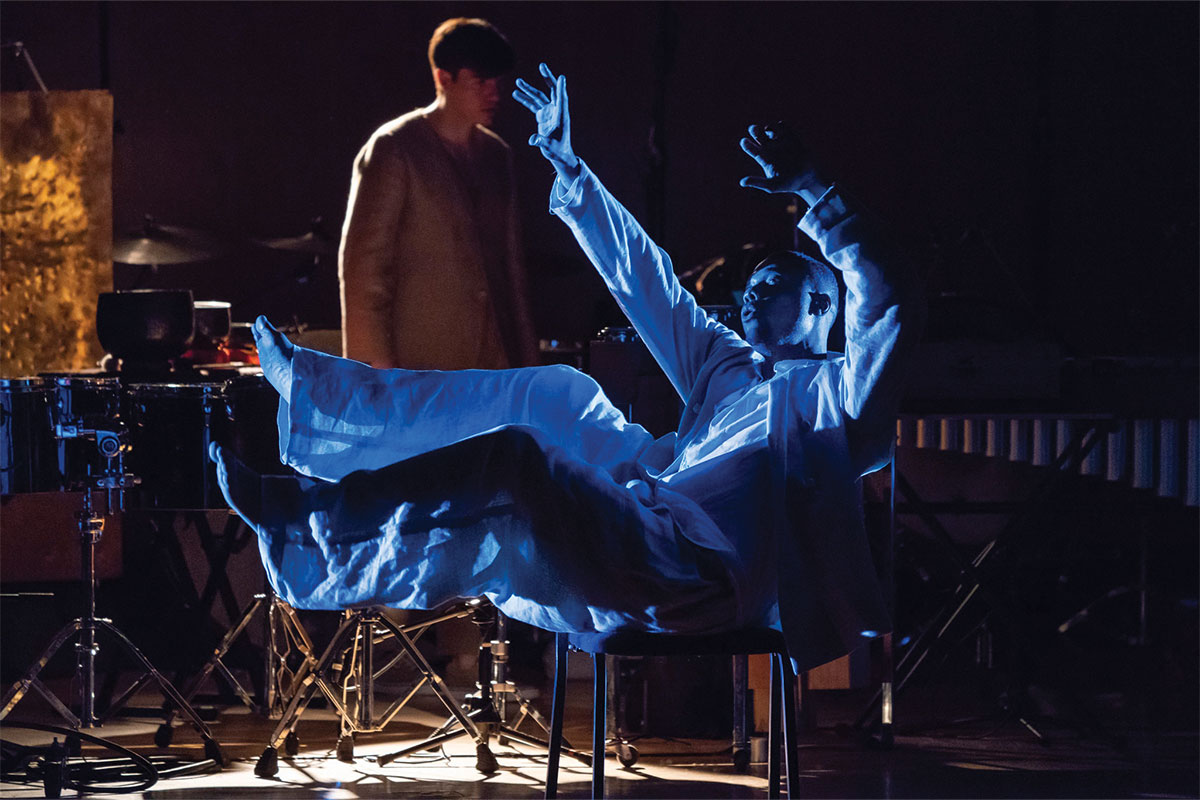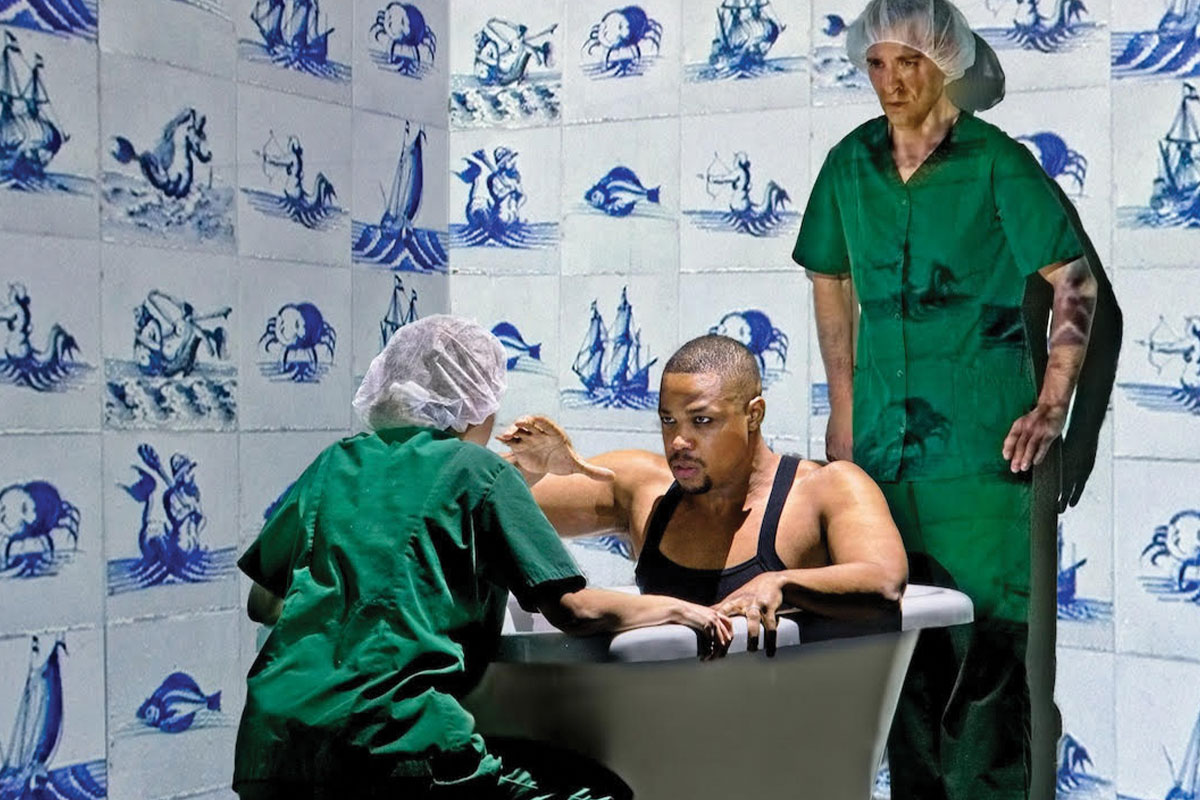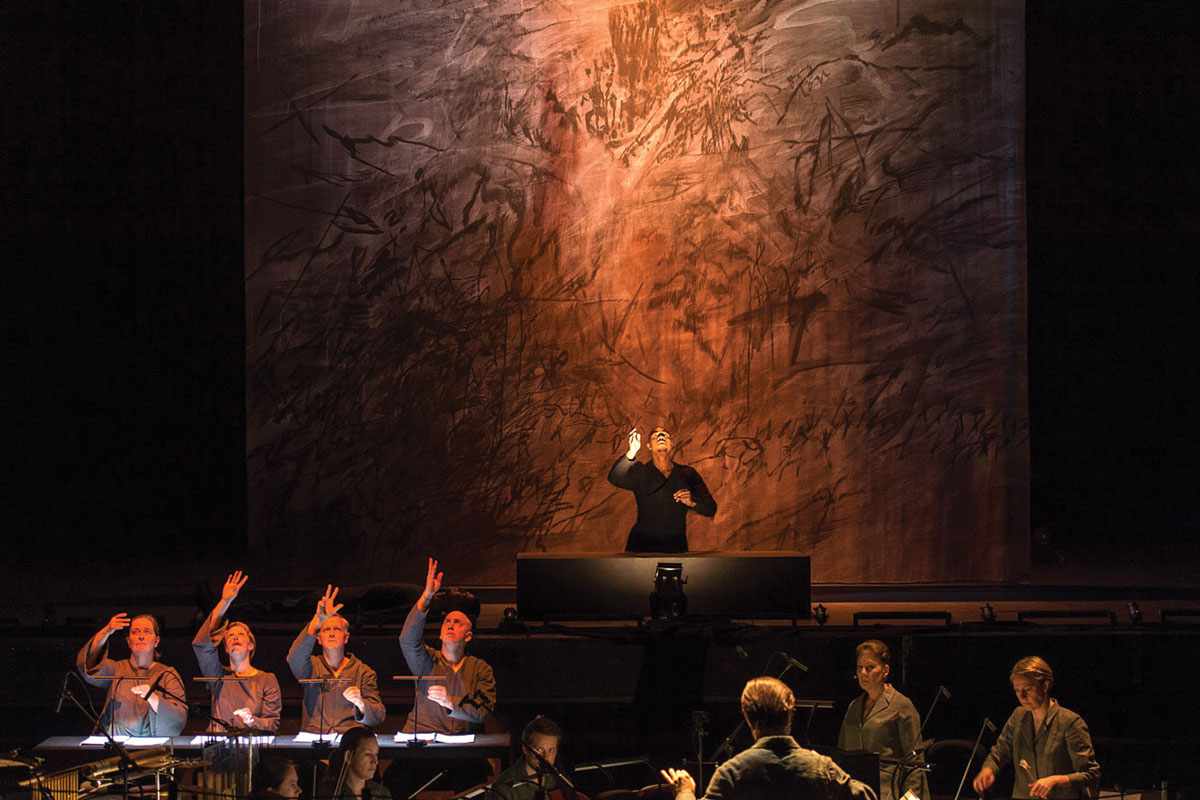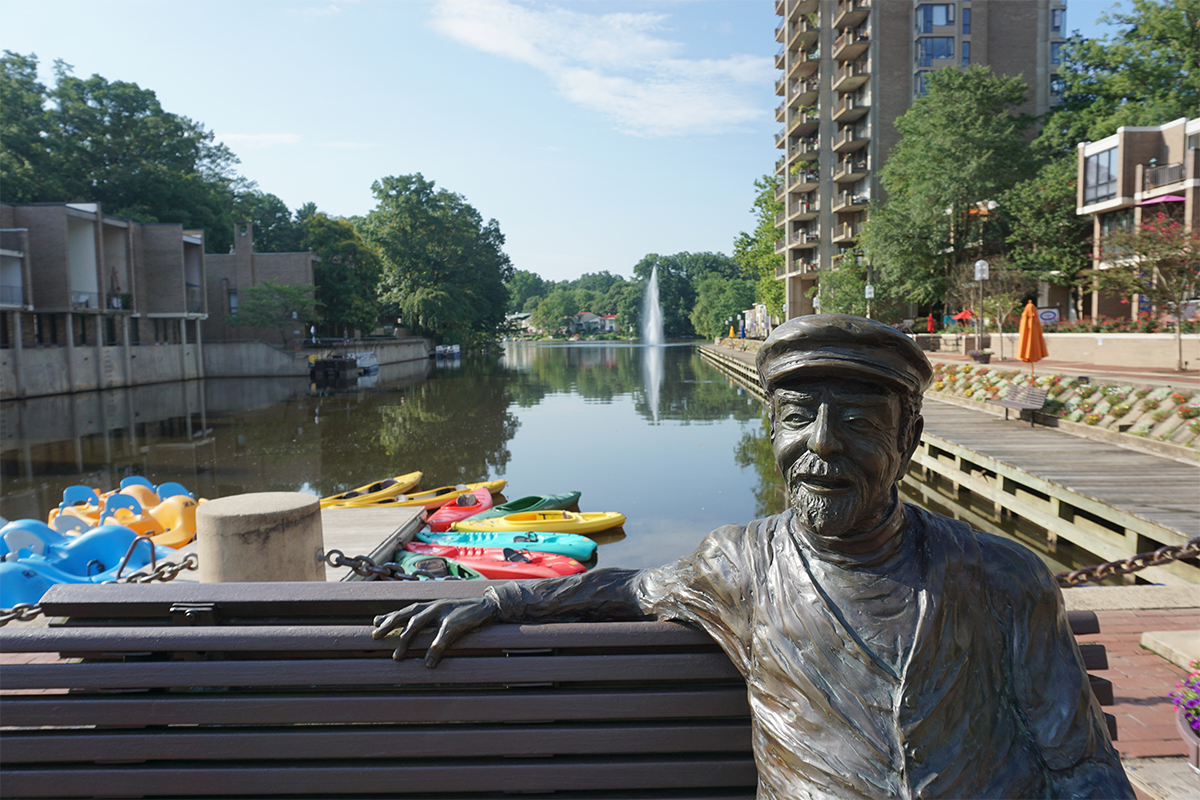Orlean is a tiny unincorporated village east of the Blue Ridge Mountains — an unlikely spot to find a Juilliard-trained, world-renowned classical singer. But Grammy-nominated Davóne Tines was raised by his grandparents, John and Alma Tines, in this sleepy hamlet, and he talks about visiting his hometown with the same enthusiasm with which he discusses his performance at the Paris Opera.
“My favorite day would be staying at my grandparents’ house,” Tines says by phone from Baltimore. “I would drive my grandfather’s vintage [Nissan] 240SX — I love driving it around horse country with all the hills, and it’s just beautiful.” After lunch, consisting of a beloved chicken salad sandwich on focaccia from Warrenton’s Cafe Torino, Tines would hang out with friends to complete his ideal visit.
The classically trained, internationally acclaimed bass-baritone doesn’t get back to Northern Virginia as often as he’d like. Instead, he maintains a dizzying pace of globe-trotting, blazing a prolific career. The Los Angeles Times calls him “the must-hear singer of opera today.” Musical America named him the 2022 Vocalist of the Year. The New York Times describes Tines as a “brilliant bass-baritone.” The trailblazing 36-year-old skillfully weaves performances in opera, spirituals, gospel, contemporary classical music, and songs of protest, seamlessly tailoring an eclectic repertoire that explores today’s social issues.
“When Davóne starts to sing, it invades you physically and morally, and your heart is stirred — everything in you is stirred,” says renowned opera director Peter Sellars. “Every time you’re with Davóne, there’s always a vision, a higher purpose, a sense of deep commitment.”

Profound Performances
The singer, whom Time magazine called a Next Generation Leader in 2019, dynamically fuses traditional opera performances with his own thematic creations, which he conceives, arranges, and flawlessly executes. Tines says within classical performing arts, there are elements that are standardized, structured, and expected, which don’t allow for culturally relevant commentary. These structures place creative power in the hands of a few, he says.
“I hope to be remembered as somebody who broke down those barriers so that people could be more engaged and taken care of,” says Tines.
He continually challenges the institution of classical music to create performances that are authentic personal expressions with the goal of universal use. Tines recalls “Concerto No. 1: Sermon,” an orchestral recital he performed with the Philadelphia Orchestra in early 2022, as well as with the BBC Symphony. The concerto reflects themes of social change, difficult truths, and human struggles, combining spoken-word texts by Langston Hughes, James Baldwin, and Maya Angelou with contemporary works including “Vigil,” in memory of Breonna Taylor, the Black woman who was shot and killed by police officers in Louisville, Kentucky, in 2020.
“The project of that concerto was to answer the question, ‘Why do I still feel the need to prove my humanity to you?’ ‘You’ being a predominantly white audience,” he says. “I’m hoping that I’m utilizing the medium to express and engage ideas and topics of my own existence that otherwise there wouldn’t be space made for.”
Colleagues attest to Tines’ cultural influence. Stage director and fellow Juilliard graduate Zack Winokur notes important original pieces the two conceived that defy convention and challenge the status quo. Their projects include Were You There, a musical and theatrical meditation on racial injustice, and The Black Clown, a musical theater experience based on Langston Hughes’ poem of the same name. Tines’ celebrated performance portrayed a Black man’s resilience against oppression. It premiered at the American Repertory Theater in 2018 and was presented at Lincoln Center in 2019.
“He is one of the great voices of our time, not only as a profoundly moving and talented singer, but also as a thinker and maker and creator,” Winokur says. “Everything that he’s doing is something he feels is an urgent thing to say — he’s really speaking to us.”
A Musical Childhood
Tines grew up around music, starting violin lessons in the sixth grade and playing for 14 years. He was so talented that when his middle school orchestra teacher was absent for a day, Tines conducted the class.
“He was always such a good kid, very humble, and still is,” says Debbie Price, Tines’ music teacher at Marshall Middle School in The Plains.
She recalls a few years ago, a fellow teacher retired after 40 years in the profession. Tines, very much immersed in a successful career by then, asked Price if he could come back and sing at the spring concert dedicated to the retiring teacher. Tines arranged a version of “Amazing Grace” to perform with the middle school orchestra.
“My kids played it, and he sang for this teacher,” she says. “Everybody was in tears.”
Tines’ grandfather first discovered his singing potential, and from there, Tines sang regularly in the Providence Baptist Church choir in Orlean, then the school choir and musicals. Upon high school graduation, he went on to major in sociology at Harvard University and graduated in 2009. Upon graduation, he began learning various facets of the music business, as a freelance arts administrator, stage manager, production manager, and a member of a choir at the Basilica of the National Shrine of the Immaculate Conception in Washington, DC. And finally, Tines studied voice performance at The Juilliard School in New York City, earning a master’s degree.

A Superstar Is Born
That’s where Sellars first heard Tines shine. Sellars visited Juilliard one afternoon to meet some next-generation performers, including Tines. From the get-go, Sellars detected Tines’ talent and star power.
“I don’t think that Davóne is made for anything like standard repertoire,” Sellars says. “Everything Davóne does should be specially made for him.”
Tines went on to a meteoric rise in opera fame during the 2015–2016 season, gaining attention in the premiere production of Only the Sound Remains at the Dutch National Opera, directed by Sellars. In the U.S., Tines earned kudos at California’s Ojai Music Festival with works by Kaija Saariaho and Caroline Shaw. He originated roles in several acclaimed operas, including John Adams’ Girls of the Golden West and El Niño, Matthew Aucoin’s Crossing, and Terence Blanchard’s Fire Shut Up in My Bones. Interspersed among his operatic endeavors are personal labors of love, like The Black Clown and Were You There. Suffice it to say, Tines continues to gain international acclaim for his astonishing talent, timely relevance, and transparent message.
“I’m making things that speak to my own experience as a young Black person in America,” he says. “I’m hoping I can inspire other creatives and other performing artists to do the same.”
Back to School
After earning success at renowned universities and on the world stage, Tines is paying it forward by coaching students at the University of Notre Dame and The Glenn Gould School at Toronto’s Royal Conservatory of Music. He also teaches at Harvard University — co-instructing a course with Winokur.
“What we’re doing is trying to figure out how to tell stories in the most compelling way,” Winokur says. “We bring in a small group of people who are engaged in their own research from all different disciplines on campus. We take their research and say, ‘Who’s the audience you want to reach? How can we transform this into something that reaches that audience?’”

Taking Stock
As an international classical superstar, Tines acknowledges how fortunate he is to travel the world and meet people from every walk of life. A long way from his days at Marshall Middle School, he’s appeared in over 50 operas and shows, averaging between two and four projects per month.
“The best thing is being challenged to think about what it means to help bring art to life,” he says. “I sometimes joke with colleagues that being a classical singer is like being paid to have therapy in front of people.”
Northern Virginians will have an opportunity to hear Tines perform June 11 as part of the Grace Episcopal Church Concert Series in The Plains, near his hometown. The event is significant; it constitutes his first-ever homecoming performance. Tines will sing his “Recital No. 1: Mass,” which presents his own interpretation of a spiritual journey.
Every breathtaking performance from the small-town Virginian evokes emotion and ushers change, colleagues say. “He’s one of the greatest, most talented people I’ve ever encountered — for me, it’s the combination of talent and a sense of purpose,” Sellars says. “The courage, focus, intensity, wisdom, and high energy that that demands — it’s what Davóne is here to offer, and share, and live through.”
Feature image by Noah Morrison
This story originally ran in our May issue. For more stories like this, subscribe to Northern Virginia Magazine.





